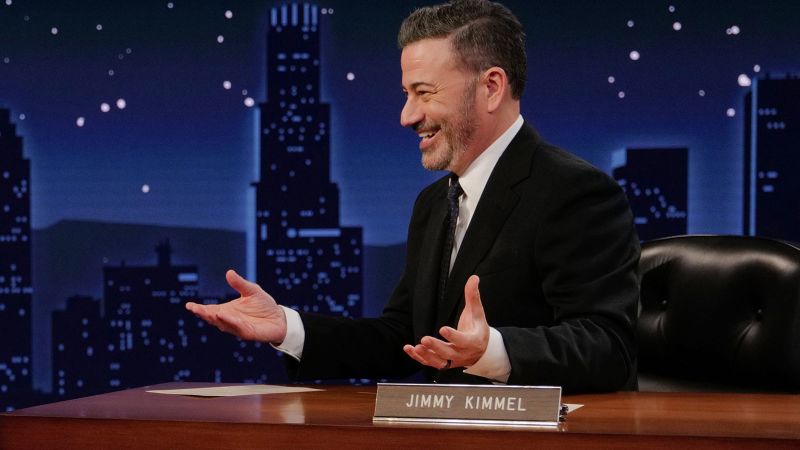The latest controversy in the entertainment world revolves around the sudden removal of Jimmy Kimmel's late-night talk show from ABC by Disney. The decision to preempt "Jimmy Kimmel Live!" indefinitely came in response to Kimmel's comments regarding the killing of Charlie Kirk by Tyler Robinson, sparking outrage from certain quarters. Nexstar, a major operator of ABC-affiliated stations, announced that they would not broadcast Kimmel's show due to objections to his remarks. The move has created a heated debate around freedom of speech, censorship, and political influence in the media landscape.
During a recent monologue, Kimmel insinuated that Robinson, Kirk's alleged killer, could be associated with pro-Trump Republicans. This led to backlash and accusations of politicizing a tragic event. FCC Chairman Brendan Carr condemned Kimmel's comments as "the sickest conduct possible" and hinted at potential regulatory actions against ABC. Carr emphasized the responsibility of broadcasters to operate in the public interest, raising concerns about the boundaries of permissible content on television.
The situation escalated further as the Center for American Rights filed a complaint with the FCC over Kimmel's remarks, calling for accountability from ABC and Disney. This incident is not an isolated one, as similar controversies involving political views and media content have arisen in recent times. The intersection of entertainment, politics, and public discourse has blurred the lines between censorship and free expression, prompting a critical examination of the media's role in shaping societal narratives.
The repercussions of Kimmel's comments have underscored the power dynamics at play in the media industry, where corporate decisions intersect with political sensitivities. The swift action taken against Kimmel reflects a growing trend of heightened scrutiny over content that straddles the line between satire and social commentary. As debates rage on about the implications of such actions on freedom of speech and artistic expression, the broader implications of this incident on the media landscape remain to be seen.
While Kimmel has been no stranger to controversy and criticism, the current situation highlights a broader trend of ideological clashes intersecting with media platforms. The role of late-night TV hosts as cultural commentators and influencers in shaping public opinion has come under scrutiny, raising questions about the boundaries of acceptable discourse. As stakeholders grapple with competing interests of creative freedom, audience reception, and regulatory oversight, the fallout from this episode underscores the complex interplay of politics and entertainment in the digital age.
In conclusion, the decision to pull Jimmy Kimmel's show off the air illustrates the complex dynamics at the intersection of media, politics, and public discourse. The incident underscores the evolving challenges facing content creators, broadcasters, and regulatory bodies in navigating the fine line between freedom of expression and responsible content dissemination. As the fallout continues to unfold, it serves as a poignant reminder of the broader implications of speech, censorship, and ideological tensions in the contemporary media landscape.


